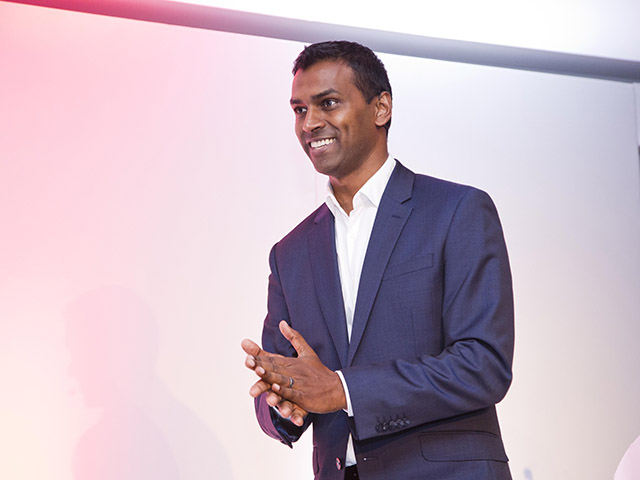By Lee Naik, the CEO of TransUnion Africa
Forget your private investor and glossy black credit card. When it comes to the cool factor, titanium is the new black.
Apple’s bank card may not have officially launched yet, but the minimalist slice of the future is sounding more and more intriguing with every new detail. Apple’s beta programme is officially underway, which means the first leaks of its sleek, numberless design and laser etched engravings have just emerged.
Don’t think the card is just a pretty face – this is Apple we’re talking about, after all. The card integrates with Apple Wallet and allows for standard transactions and offers instant cashbacks, especially on Apple services and products. It can be activated in minutes on your iPhone via a seamless one-click sign-in platform that also offers user privacy. And just in case that wasn’t quite enough to pique your interest, the card will feature absolutely no merchant fees outside of interest rates.
Can you imagine the kind of disruptive impact it would have if it dropped in South Africa tomorrow? Even our new entrant banking players which are marketing themselves on ultra-competitive pricing, have fees for things like withdrawals and deposits. The banking and finances space – already in the grips of disruption and digital transformation – is about to get even more competitive as global players circle.
The game is on. So who are the stars on the pitch?
Becoming Best Friends with your Bank
If you could bet on the big winner of the digital banking wars, who would you place your chips on? In the one corner are South Africa’s digital trailblazers and disruptors. The likes of FNB and Capitec have been moving away from pure transactional products and towards a model of everyday banking.
Nowadays, your bank can help you travel, save on fuel, renew your car licence, get discounts on restaurants, pay off fines, and much more. Instead of just offering products and services, they’re becoming value aggregators. They want to be your friend with the connections, who knows all the right people and all the shortcuts to make your life easier. That friend who saves you R250 on petrol or helps avoid a queue at the post office.
All of this is possible because they own the payments and transactions space. Or at least they used to. Other industries are realising the benefits of creating their own self-powered value aggregation ecosystems and moving in on traditional banking turf.
Take Discovery, whose business model is heavily dependent on being a value aggregator for health and wellness. Discovery is the friend who encourages us to go to the gym or a Parkrun, helps us choose healthier options at the supermarket, and knows exactly how to get us free coffees and discounts on smart watches.
Its whole value proposition is its seamless and integrated network that understands you well enough to direct you to the right products and services, rewards you in real time for making good lifestyle choices, and automatically adapts its own offerings to fit your needs. If Discovery Bank is able to establish itself in the transactions and payments space, those possibilities to deliver value become nearly endless.
Happiness is a Five Letter Word
So how does Apple compare? It may be new to the credit card space, but few brands have mastered the network effect quite as well. It’s already built up the Apple lifestyle through the native services bundled into its devices, as well as its product and accessory ecosystem.
Apple’s advantage is that it’s got one of the most loyal customer bases around and an incredibly expansive, self-contained ecosystem that is growing with each new event. Forget falling device sales - sales of apps, movies, games, Apple Music, AppleCare, iCloud subscriptions and Apple Pay fees generated roughly $39.6 billion over the last year. Music, streaming video, news, shopping, games – Apple’s investing heavily in all of these with the hopes of becoming the ultimate happiness ecosystem.
Yes, there are plenty of content providers out there who are adept at picking the perfect playlist or TV show, but Apple’s looking to offer all of that in a single seamless ecosystem. Why would anyone want to leave the Apple ecosystem for a standalone service it’s easier, more convenient and makes more financial sense to just use an Apple service?
Apple doesn’t just want to be your friend. It wants to be your best friend. And becoming the centre of its customers’ lives isn’t a stretch because in many ways, it already is. After all, the best friends are those who are there for you wherever you are.
It’s All in the Network
Apple is not the only player in the game when it comes to its everyday banking strategy. Facebook has just announced its own cryptocurrency called Libra, with the lofty goal of becoming the world’s first truly mainstream blockchain-based currency. The initial plans are to focus on money transfers in developing countries, and it’s easy to see how quickly Libra might gain momentum if it cracks the sleeping giant of remittances.
Then there’s Amazon, a formidable value aggregator in its own right. Amazon Prime currently has over 100 million subscribers and offers a range of benefits from video streaming to photo storage to grocery discounts. When it comes to friends who have your back, you don’t get much better than Alexa.
You could argue for any one of these players to emerge victorious – each is capable of delivering value at every point of engagement with its customers. Whoever manages to take the lead in the quest to become the ultimate best friend, it’s the consumers who will emerge as the biggest winners.
Which South African companies do you foresee the leading ecosystem players in their industry? Do you believe organisations like Discovery and FNB are well-positioned enough to take on powerhouses like Apple and Facebook as everyday value aggregators?





